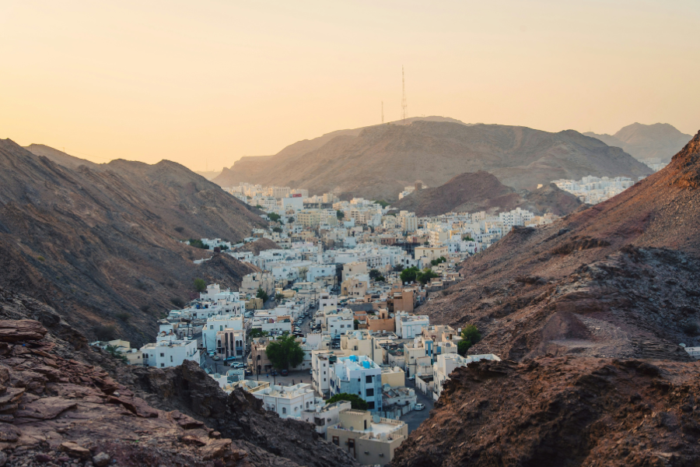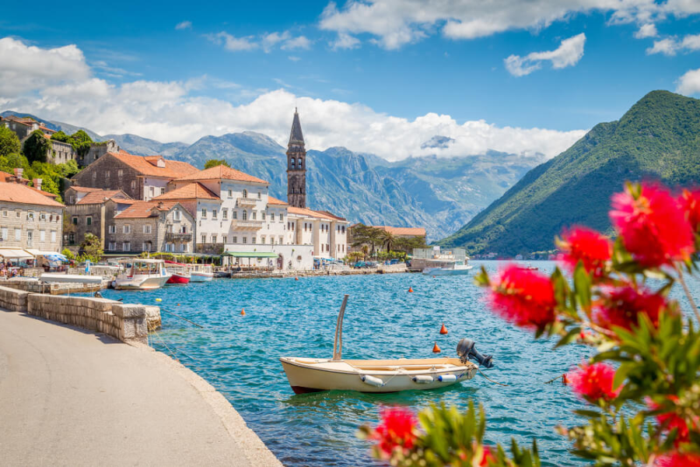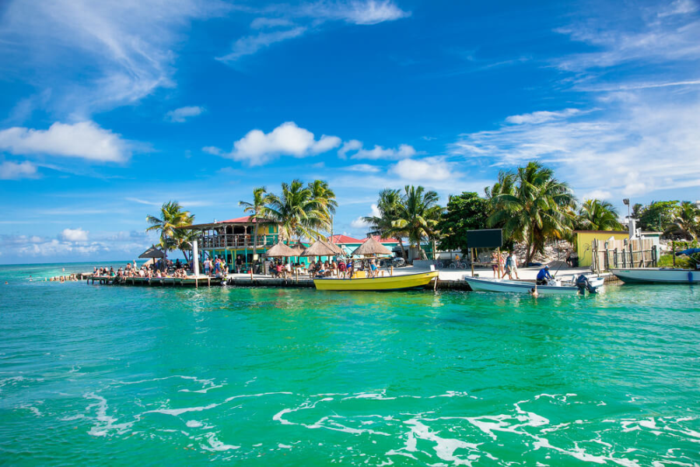Top Emerging Tax Havens for 2025
June 11, 2025
When most people think of tax havens, they tend to picture some far-flung tropical paradise with little or no regulation and, of course, no taxes.
Whatever image you conjure up, the reality is that many of these classic tax havens aren’t as effective as they used to be.
There are now real opportunities in emerging tax havens – countries that offer new ways to legally reduce or eliminate your taxes.
These places might not always promise a completely tax-free life, but they provide a path to serious tax optimisation, which often comes with attractive residency options and a high quality of life.
As traditional tax havens become less accessible, these new frontiers offer serious options for global investors and entrepreneurs.
So, if you’re looking for opportunities to reduce or eliminate your taxes legally, this in-depth guide is exactly what you need.
What Makes a ‘Tax Haven’?
In the traditional sense, a tax haven is somewhere you can live or do business without paying any taxes.
Simple enough.
The problem is that pure zero-tax countries are increasingly rare. Even the classic tax havens – places like the Cayman Islands or Monaco – often have high living costs, strict residency rules and hidden fees.
Dubai, a once-famous tax haven, now has a 9% corporate tax (on top of the VAT it charges), and that’s just one example.
So, tax havens aren’t necessarily about zero taxes across the board. The real secret to tax havens is understanding what taxes a country does and doesn’t have.
There’s no one-size-fits-all. Some places have no income tax but charge hefty corporate taxes, while others have low corporate taxes but tax you personally if you stick around too long.
Some places technically have high tax rates, but depending on how you structure things – where your business is based, how you hold your assets, how often you’re physically there – you might still legally pay nothing.
That’s why finding the right option is about more than just picking a country from a list.
You have to know what you’re optimising for.
Are you a business owner trying to cut corporate tax to zero? An investor looking to escape capital gains tax? Someone who just wants to live in a place where they won’t get taxed on foreign income?
Your goals determine your strategy.
The good news is that even as the classic tax havens fade, new opportunities are emerging. Countries are changing their tax laws, opening up new immigration options and creating loopholes that you can take advantage of with the right strategy.
If you know where to look, you can still go where you’re treated best.
What to Consider When Moving to a Tax Haven
Not all tax havens are created equal.
Each one has its own set of rules, tax structures and residency requirements, so you need to understand the details.
First, consider your home country’s tax rules.
For example, US citizens will still need to file tax returns, even if they live abroad, because the US taxes its citizens on their worldwide income, no matter where they live.
Other countries, like Canada and the UK, can have treaties that can help you avoid double taxation.
So, it’s crucial to check your country’s specific tax laws and figure out how they’ll interact with the country you’re considering. Otherwise, you might end up in a zero-tax jurisdiction but still owe money to the revenue service in your home country.
Next, understand how to become a tax resident in your chosen tax haven.
Some countries require you to spend a certain number of days there to qualify as a tax resident (usually around 183 days per year).
When evaluating tax havens, also consider trade-offs such as low taxes versus higher living costs, strict residency rules, or zero personal income tax versus taxes on your business or foreign investments.
You’ll need to weigh the benefits against the potential downsides.
Ultimately, choosing the right tax haven comes down to understanding the fine print. It’s not just about avoiding taxes – it’s about finding a place that aligns with your lifestyle and financial goals.

Emerging Tax Havens to Consider
These locations are not all ‘pure’ tax havens (places with zero taxes), but they are places where you can seriously optimise your lifestyle and taxes.
Importantly, they’re also functional places where you can live, move and incorporate a company.
Oman
Oman might not be the first place you think of but it’s quietly becoming one of the more interesting options out there.
It has no personal, capital gains, dividend or wealth taxes.
The only tax you’ll encounter is corporate tax, which is a flat 15%. That’s not rock bottom, but depending on how your offshore setup is structured, it might not even matter.
There are no Controlled Foreign Corporation (CFC) rules for individuals, so if you have a well-planned international business structure, Oman won’t come after you for profits made elsewhere.
Establishing residence in Oman is straightforward but not cheap, as you’ll need to either start a business or invest in real estate.
If you opt for the business route, expect some costs, as Oman has relatively high capital requirements for company formation.
To be considered a tax resident, you need to spend at least 183 days in the country in a given year. If that works for your lifestyle, you get the benefit of living in a tax-free jurisdiction with no exit tax and no CFC headaches.
On top of this, Oman’s quality of life is better than you might expect, with modern cities and stunning coastlines.
Georgia
Georgia is not typically considered a tax haven. But you can seriously optimise your taxes here while enjoying a high quality of life.
With a 15% corporate income tax and a flat 20% income tax, it’s one of the most business-friendly economies in the world. It’s also one of the easiest places to set up a company, get a bank account and establish residency with relatively low bureaucracy.
With Georgia’s territorial tax system, you only pay tax on income sourced within Georgia.
That means foreign income – whether from investments, business or remote work – is not taxed at all.
Becoming a tax resident in Georgia is fairly straightforward. If you spend 183 days in the country over any 12-month period, you qualify. But what makes Georgia even more appealing is that you don’t necessarily have to live there to establish tax residency.
If you qualify as a high-net-worth individual – by proving you have at least US$1 million in global assets or have earned over US$70,000 per year for the last three years – you can become a tax resident without the 183-day rule.
However, you’ll need to own at least US$500,000 worth of assets in Georgia or show that you earn at least US$8,100 per year from Georgian sources. This can be done by opening a high-interest deposit account in a local bank, renting out property or paying yourself a salary from a Georgian company.
There’s no wealth tax, no exit tax and no CFC rules. Capital gains tax is 20% for residents, but if you structure things properly and keep your investments offshore, you might not owe anything.
Dividends are taxed at 5%, which is low compared to many other countries.
Georgia is one of the easiest places to relocate to if you want a simple, low-tax lifestyle. The cost of living is affordable, the visa and residency options are flexible and it’s a country that actually welcomes foreigners looking to do business.
Anguilla
Anguilla boasts an impressive lineup of benefits:
- No income tax
- No capital gains tax
- No corporate tax
- No dividends tax
- No wealth tax.
So, if you’re looking for a place that won’t touch your money, Anguilla is a great example.
Unlike many traditional tax havens, Anguilla offers a clear way to establish residence.
The High Value Resident (HVR) Programme lets you become a resident by paying a flat US$75,000 per year in tax, spending at least 45 days in the country and not becoming a tax resident anywhere else. You’ll also need to invest at least US$400,000 in real estate.
For the right person, this could result in enormous tax savings compared to a place like the US or the UK.
If you’re running a business, Anguilla’s tax system is even more appealing. There’s no corporate income tax, no CFC rules and no restrictions on offshore earnings. That means you can base a company here and operate tax-free as long as you’re not doing business inside the country.
Anguilla isn’t the cheapest or easiest place to establish residency, but for those who meet the criteria, it’s a legitimate way to legally live a tax-free life.
The island itself is stunning, the beaches are world-class, and with the right setup, you can enjoy it all while paying nothing in tax beyond your annual flat fee.

Montenegro
With low taxes, easy residency options and a pathway to citizenship, Montenegro offers a unique mix of financial benefits and lifestyle appeal.
The tax system is relatively simple. Corporate tax is progressive, starting at 9% for profits up to €100,000 and capping out at 15% for companies making over €1.5 million.
Personal income tax follows a similar model, with salaries under €700 taxed at 0%, income up to €1,000 at 9% and anything above that at 15%.
Capital gains tax is also 15%, but there are exemptions, such as when selling a primary residence or transferring property between family members.
It’s certainly not a zero-tax destination, but as a European base, the tax rates are excellent.
Plus, Montenegro is an easy country to move to, where you can get a residence permit by simply buying real estate.
Add to this a low cost of living, the beautiful Adriatic coastline, and easy access to Europe while remaining outside the EU tax net, and Montenegro is definitely a place worth considering.
Moldova
Moldova has created a unique tax regime designed specifically for IT businesses, allowing companies to pay just 7% of total revenue under the Moldova IT Park program.
This single tax replaces corporate tax, personal income tax, social security contributions and other levies, making it one of the simplest and most attractive tax setups for tech entrepreneurs.
To qualify, your business must operate within an officially recognised IT park and generate at least 70% of its revenue from IT-related activities.
This could include software development, digital marketing, consulting or other tech-based services. The tax structure is particularly appealing for remote-based businesses, as you don’t need to be physically present in Moldova to benefit.
Kyrgyzstan
You’ve probably never considered Kyrgyzstan as a tax haven, and that’s fair enough.
But, while it’s a remote and rural country, for the right person, it also offers a simple, low-tax environment with minimal bureaucracy.
A flat 10% tax rate applies to both personal and corporate income. If you’re running an online business, the country also offers an e-commerce tax of just 2%.
Unlike some territorial tax systems, Kyrgyzstan does tax worldwide income, so structuring your affairs properly is key. But with no wealth or inheritance taxes and no tax on dividends received from domestic companies, there are plenty of ways to optimise your situation.
If you’re a non-resident, your tax liability is limited to Kyrgyzstan-sourced income, making it an interesting option for those who want a legal tax base without necessarily living there full-time.
While it’s probably not a country you’d want to live in full time, Kyrgyzstan does offer an extremely low-cost, business-friendly environment with a straightforward tax system.

Belize
Belize does not tax foreign-sourced income, so if you live there but earn money elsewhere, you pay zero tax.
The corporate tax rate is 1.75% for businesses making over US$1.5 million and 3% for smaller businesses, but this only applies if you operate inside Belize.
If your company is purely offshore, you can maintain it as a ‘pure equity holding company’ and avoid local taxation altogether.
The country also has no wealth tax, inheritance tax, or capital gains tax.
Securing residency in Belize is relatively easy. The Temporary Investor’s Residence Program requires a US$500,000 investment in the country – the real estate, tourism, agriculture or other approved sectors all qualify.
There’s no physical presence requirement to maintain the visa, making it ideal for those who want a legal tax base without actually living there full-time. Belize also offers a pathway to citizenship after five years.
Trusts here are cheap and effective, providing a level of financial security found in places like the Cook Islands but at a fraction of the cost.
Overall, for those who want a tropical lifestyle with legal tax advantages, Belize is a solid choice: English-speaking, close to the US and still one of the more relaxed offshore jurisdictions, it can be a great base.
Antigua and Barbuda
Antigua and Barbuda is one of the few places left where you can legally establish tax residence without actually living there full-time. Among the attractions are:
- No income tax
- No capital gains tax
- No inheritance tax
- No wealth taxes.
The country’s tax residency regime requires you to spend just 30 days per year in Antigua while maintaining a residence there, either rented or owned. In exchange, you pay a flat US$20,000 per year and get an official tax ID number.
As long as you don’t spend 183 days in any other country, you can use this setup to avoid triggering tax residency elsewhere.
Corporate tax is 25%, but this only applies to companies that are incorporated, managed or doing business in Antigua. If you own an offshore company that isn’t controlled from within the country, it won’t be taxed.
This setup works best for high-income earners who want a simple, legal tax residency with no local tax obligations. It’s especially appealing for those who already have an offshore company and need a tax-friendly place to live.
Of course, Antigua and Barbuda also offers one of the best value citizenship-by-investment programs available.
Malaysia
Malaysia does not tax foreign-sourced income. It means that if you’re earning money from a business, investments or other sources outside of Malaysia, you won’t owe any tax on it – even if you bring it into the country.
This setup is especially useful for people on the Malaysia My Second Home (MM2H) visa, which allows long-term residency with minimal tax obligations. As long as your income is generated abroad, you won’t have to pay Malaysian taxes.
If you do earn money in Malaysia, personal income tax is progressive, ranging from 0% to 30%. However, capital gains tax is mostly non-existent except for real estate sales, which can be taxed at up to 30%.
Dividends are tax-free, and there are no wealth taxes or CFC rules.
If you have offshore income and want to live in an affordable, business-friendly country without paying tax, Malaysia is an excellent option.
Emerging Offshore Tax Havens: FAQs
Tax havens are countries that offer low or zero taxes, financial privacy and legal means to reduce your tax obligations.
Traditional tax havens include places like the Cayman Islands, Monaco, St Kitts and Nevis and Bermuda.
Some US states like Wyoming and Nevada have no state income tax, making them attractive for domestic tax optimisation. Puerto Rico is one of the best options for US citizens, as its Act 60 incentives allow individuals and businesses to pay significantly lower taxes while remaining under US jurisdiction.
You need to meet the country’s residency requirements, which could involve spending a minimum number of days there, buying property or making an investment. Some places offer residency programmes with little or no physical presence required. Before moving, you should also consider your home country’s tax laws to ensure you won’t still owe taxes there.
Places like the Cayman Islands, Monaco, the UAE and Seychelles are well-known for their tax benefits. However, many traditional tax havens have become more restrictive or expensive. Today, emerging tax havens, such as Oman, can offer better opportunities for those looking to reduce taxes legally.
Antigua and Barbuda, Anguilla, St Kitts and Nevis and the Cayman Islands offer zero income tax and attractive residency options. Many Caribbean countries also have citizenship-by-investment programs, allowing you to obtain a second passport with tax benefits.
Malta, Georgia, Montenegro and Moldova are among the best emerging tax havens in Europe. They offer low corporate and personal tax rates, easy residency options and territorial tax systems that don’t tax foreign income. While not tax-free, these countries provide excellent tax optimisation opportunities compared to Western Europe.
It depends on what you’re looking for. If you want a tax-free lifestyle in a tropical setting, Anguilla or Antigua and Barbuda are great choices. If you prefer a European base with low taxes, Georgia or Montenegro are good options. Malaysia is also a strong contender for those earning foreign-sourced income, as it remains tax-free while offering a high standard of living.
Fresh Opportunities for Tax Optimisation
Choosing the right tax haven for your life or business isn’t just about picking a place with the lowest tax rate – it’s about finding a jurisdiction that fits your personal goals, lifestyle and financial needs.
So, when you consider all of these factors, the old go-to tax havens may not be the best option for everyone.
Instead, emerging tax havens offer fresh opportunities for tax optimisation, flexibility and a better quality of life.
Whether you’re an entrepreneur, investor or digital nomad, the key is to pick a country that works for you – not just your taxes.
If you need help navigating the complexities, Nomad Capitalist can guide you through the process.
We’ve helped over 2,000 high-net-worth entrepreneurs and investors go where they’re treated best through tax optimisation, offshore planning, second citizenships and more. Reach out today for a plan that works for you.



Does Puerto Rico Pay Taxes to the US?
It’s a common question and one that often fuels confusion, debate, and a fair share of misinformation – Do residents of Puerto Rico actually pay US federal taxes? When most people think of US tax obligations, they naturally assume they apply uniformly across all US citizens. But when it comes to Puerto Rico, things are […]
Read more

Zug Canton Taxes: The Ultimate Destination for Wealth Management in Switzerland
Switzerland’s global reputation is built not just on stunning views of Alpine peaks and serene lakes but also on a foundation of exceptional quality of life, world-class infrastructure and investor-friendly tax policies. The results speak for themselves: efficient public transport seamlessly links cities and villages; the standard of living regularly ranks among the highest in […]
Read more

How Smart Investors Use Venture Capital to Build Wealth
Big companies like Google, Amazon, Facebook and Apple all started out as bold ideas backed by venture capital. Decades later, the same firms are household names, as familiar to most people as electricity, the internet, or the telephone. But hindsight is a fickle friend. The truth is, it wasn’t always so obvious they’d succeed. These […]
Read more





